Welcome to the January 2024 edition of the Curious Tea subscription! Here’s a closer look at the four exciting new teas that we are sharing with our subscribers this month.
For this month the first light tea that we selected is a particularly good autumn harvest of a lightly oxidised floral oolong from the fabulous Shan Lin Xi terroir in Taiwan. The second light tea is from our veteran producer in Japan whose tea factory has over 150 years of history and it represents a classic Sencha green tea that undergoes stronger roasting.
For the dark side of the selection we have another unusual choice, since the selected tea is officially classed as a green tea. Consisting of roasted twigs and crafted by the Choi family in South Korea, it delivers a complex and comforting roasted flavour. Finally the last tea to be featured is a Vietnamese black tea that is picked from wild tea trees in the ancient forests of northern Vietnam to produce a complex tea with a classic black tea profile.
Our Discovery subscription boxes contain 10g taster pouches of all of the above mentioned teas. If you are a subscriber you will benefit from a 10% discount on all teas from our tea shop!
Let’s get into further detail on these teas featured in our January tea subscription boxes.
Shan Lin Xi Qing Xin Autumn Oolong
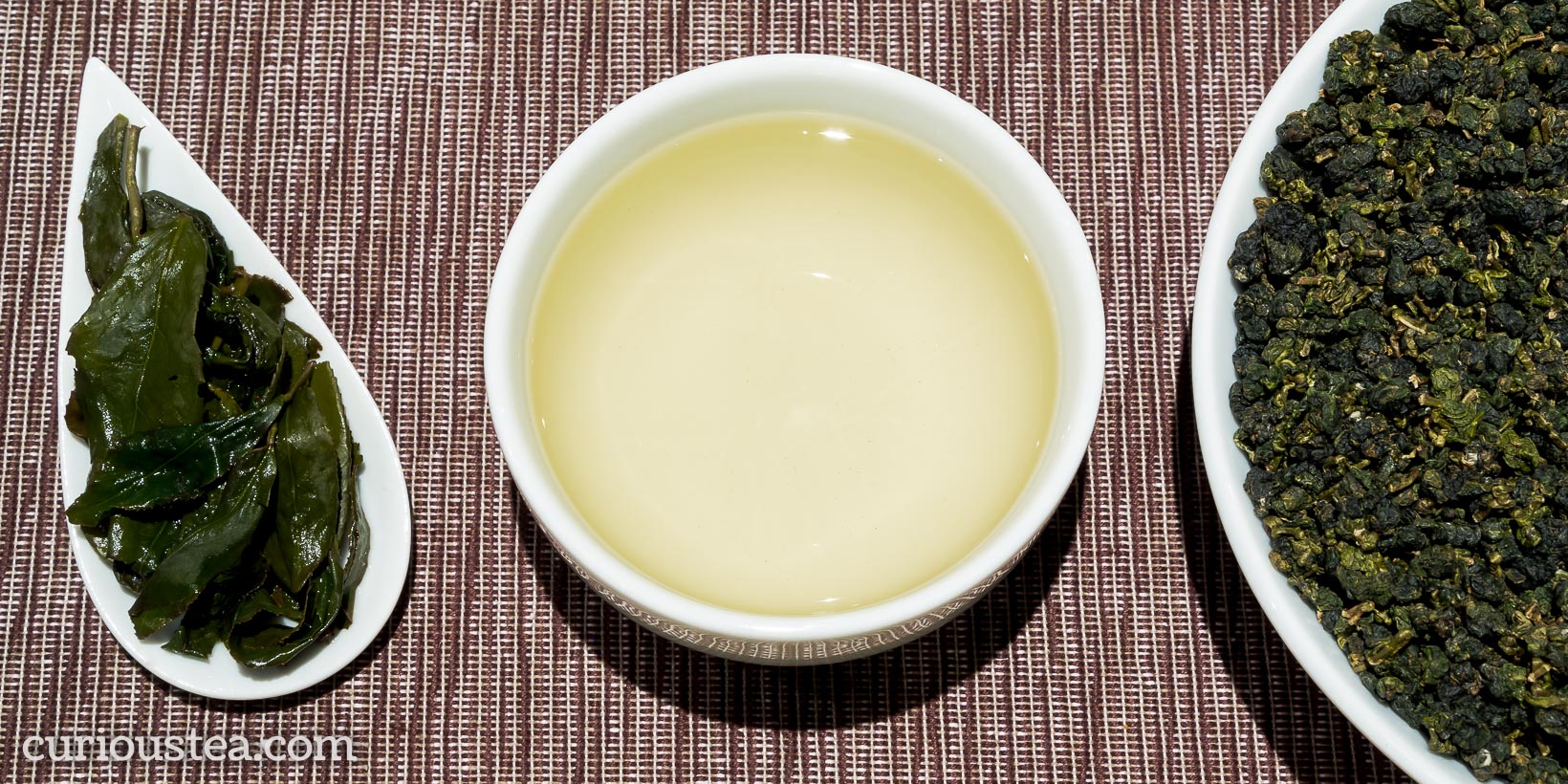
Shan Lin Xi Qing Xin Autumn Oolong (杉林溪秋天烏龍) is a lightly oxidised high mountain oolong from the famous Shan Lin Xi (Sun Link Sea) tea growing area located in Nantou County of Taiwan. It features an attractive floral provide with fresh verdant notes. This oolong is made from hand-picked leaves of Qing Xin ‘Green Heart’ (青心) cultivar plants that are grown at an altitude of 1,100-1,200 metres. It is grown by Mr Chen and was picked and carefully processed in September 2023, when a particularly fine batch was produced. We source it from Mr Chen via our Tea Master in Taiwan.
Shan Lin Xi (杉林溪) is an exceptional terroir located high in the mountains of Nantou Province. Although Alishan as a terroir may be more famous, it is without doubt that Shan Lin Xi produces high mountain (Gao Shan) oolong teas that are also considered to amongst the best from Taiwan. Shan Lin Xi can be literally translated as Pine Forest Stream from Chinese. However it is also commonly known as Sun Link Sea, an English phonetic approximation of the Chinese Shan Lin Xi, a process referred to as phono-semantic matching in linguistics. So both Sun Link Sea Oolong and Shan Lin Xi Oolong refer to teas from the same terroir. The gardens of Sun Link Sea terroir range in altitude between approximately 1,000 and 2,000 metres. The picturesque mountainous landscape is also home to Shanlinxi Forest Recreation Area, a popular destination for nature hiking that is known for its giant forest trees and waterfalls.
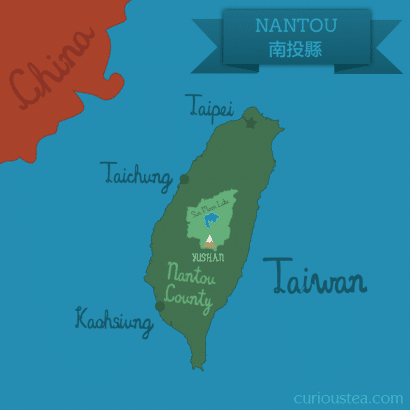
The vast majority of oolong teas grown at high altitude in Taiwan are made from the Qing Xin ‘Green Heart’ (青心) cultivar plants. This is true of most Sun Link Sea oolong teas as well. This particular Shan Lin Xi Qing Xin Oolong is also made from hand-picked leaves of Green Heart cultivar plants. This particular batch was picked in September 2023 when the weather conditions contributed to a particularly good batch. The oxidation level is approximately 20% and this tea does not undergo any baking. This results in a beautiful floral aroma and character that Taiwanese high mountain oolong teas are famous for.
This Shan Lin Xi Qing Xin Autumn Oolong comes in tightly rolled leaves, which are mostly large but also vary in size. The dark green leaves have a wonderfully floral aroma. When brewed they unfurl into large leaves consisting of a tip and the top 1-3 leaves. The produced liquor is clear and bright, with a pale golden colour and a highly aromatic floral scent. The refreshing bright and clean flavours are predominantly floral with a pleasant sweetness running through. There are further verdant notes with a buttery and herbaceous undertone that adds pleasant complexity. Finally, the aftertaste is lasting, with a mouth coating silky smoothness. This tea is a fantastic example of a classy Sun Link Sea oolong displaying the best bright and floral characteristics.
We suggest brewing this tea at 90°C for 3 minutes according to your taste. It can be brewed 3+ times depending on your taste preferences. To get the most out this tea, consider using a gaiwan or a traditional clay pot to benefit from the complexity of flavours from repeated multiple infusions. For gong fu brewing we suggest using 6g per 100ml at 95c. Optional 2-3 second rinse, 1st infusion 25s, add 5s to each further infusion. Gong fu style brewing should get many, many infusions from this lovely tea!
You can also buy this Shan Lin Xi Qing Xin Autumn Oolong tea in our online shop.
Kirishima Roasted Sencha
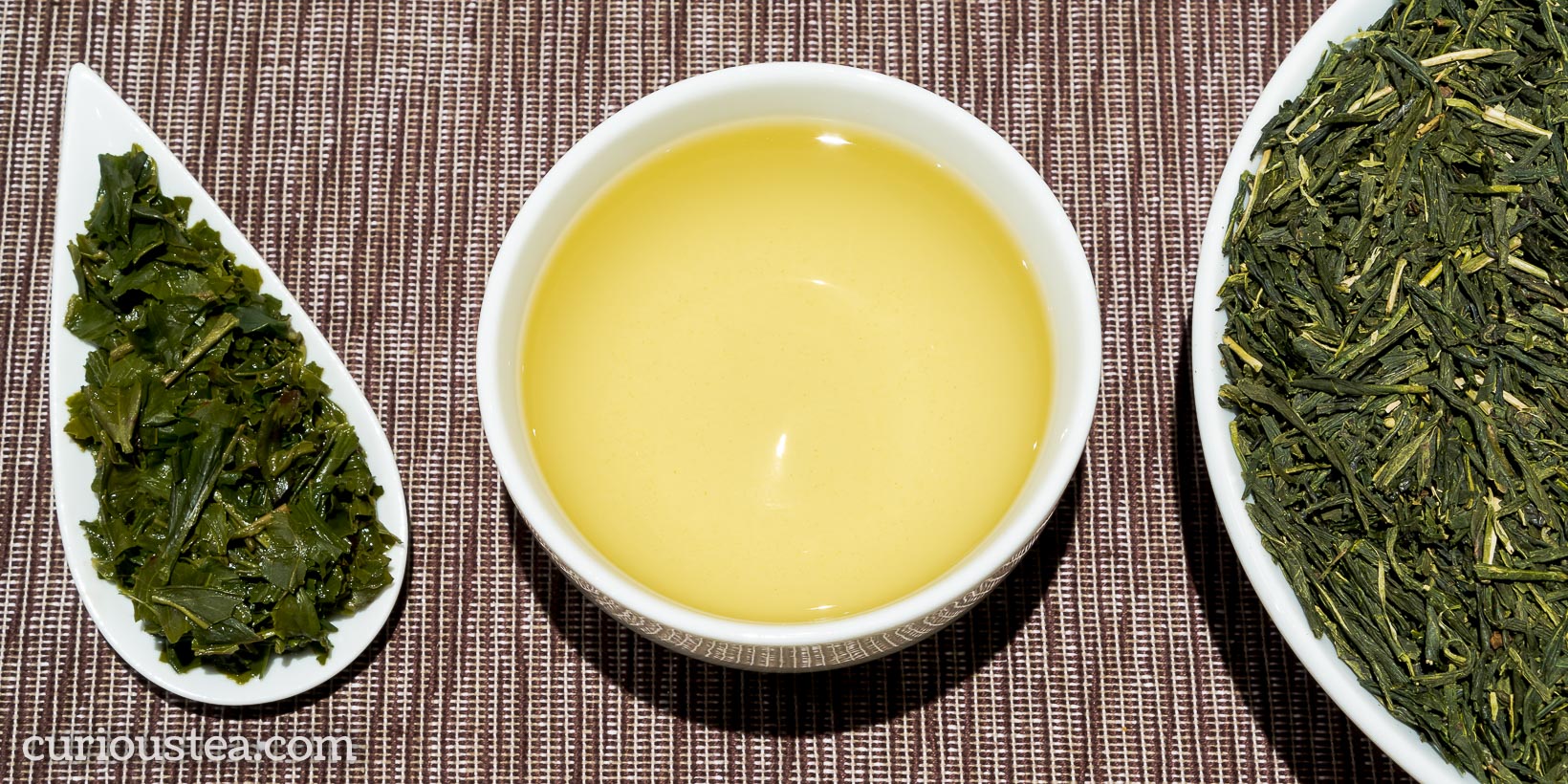
Kirishima Roasted Sencha (霧島強火煎茶) is a stronger roasted Japanese green tea that is grown in Kirishima, Kagoshima Prefecture. Made from Yabukita (やぶきた) cultivar plants, it produces a toasty and savoury liquor with smooth vegetal flavour. This tea is grown at an organic plantation that has full organic certification by the Japanese Ministry of Agriculture, Forestry and Fisheries. We source this tea directly from the owner of the plantation. He is the owner of a small family-run business based in Shizuoka and Tokyo with over 150 years of history. They own small plantations in Kagoshima, Aichi and Kyoto Prefectures where they produce organic and traditional Japanese green teas. This particular tea comes from their small organic plantation in Kirishima and it was picked and processed on 25 May 2023.
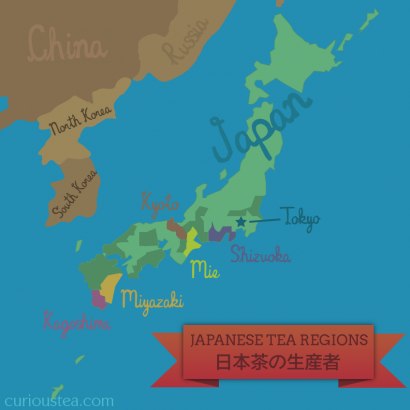
The organic plantation that this tea comes from is located in the foothills of Mount Kirishima in Kagoshima Prefecture, Kyūshū. It is grown at an altitude of around 400m above sea level. As Kyūshū is the most southwesterly island of the Japanese four main islands, it enjoys a rather mild climate. But it can still get cold in the highlands, which are covered in snow in the winter months. The seasonality of the region requires frost hardy cultivars to be used, which tend to grow leaves slower, resulting in more flavoursome teas.
This Kirishima Sencha is made from the leaves of Yabukita cultivar plants. This cultivar is the most popular and widespread tea plant in Japan and Yabukita plants cover about 75% of Japanese tea fields. It was developed by a tea breeder from Shizuoka in the early 1900’s called Hikosaburo Sugiyama, but it was officially registered only in 1956. The well-performing Yabukita plants quickly proved popular due to their hardiness, ease of cultivation and tea flavours; with time becoming the mainstay of Japanese green tea production. One of the main factors for the popularity of the Yabukita cultivar has been the flavours that they are known for. These plants produce teas with typical savoury and umami grassy flavours and strong aromas that are particularly sought after in Japanese green teas.
When compared to our popular standard version, this more roasted tea is made from slightly larger later harvest leaves, making it a more affordable everyday drinker. The stronger roasting also imparts a very accessible character to this tea, specifically designed to appeal to a wider audience. An excellent choice to start exploring Japanese green teas, especially if you are more used to pan friend Chinese varieties.
When brewed, Kirishima Roasted Sencha produces a bright yellow green liquor with a lightly toasted aroma. The savoury and toasty taste is vegetal and savoury, with a pleasant creamy mouthfeel running throughout the taste. There are some mineral top notes, but the overall flavour is fresh and herbaceous. The aftertaste is on the lasting side, with a hint of dryness and an umami flavour.
It is best brewed at 70°C for 2-3 minutes and can be brewed 2+ times depending on your taste preferences.
Location of the organic tea garden in Kirishima, Kagoshima Prefecture, Japan:
You can also buy this Kirishima Roasted Sencha green tea in our online shop.
Boseong Kuki Hojicha
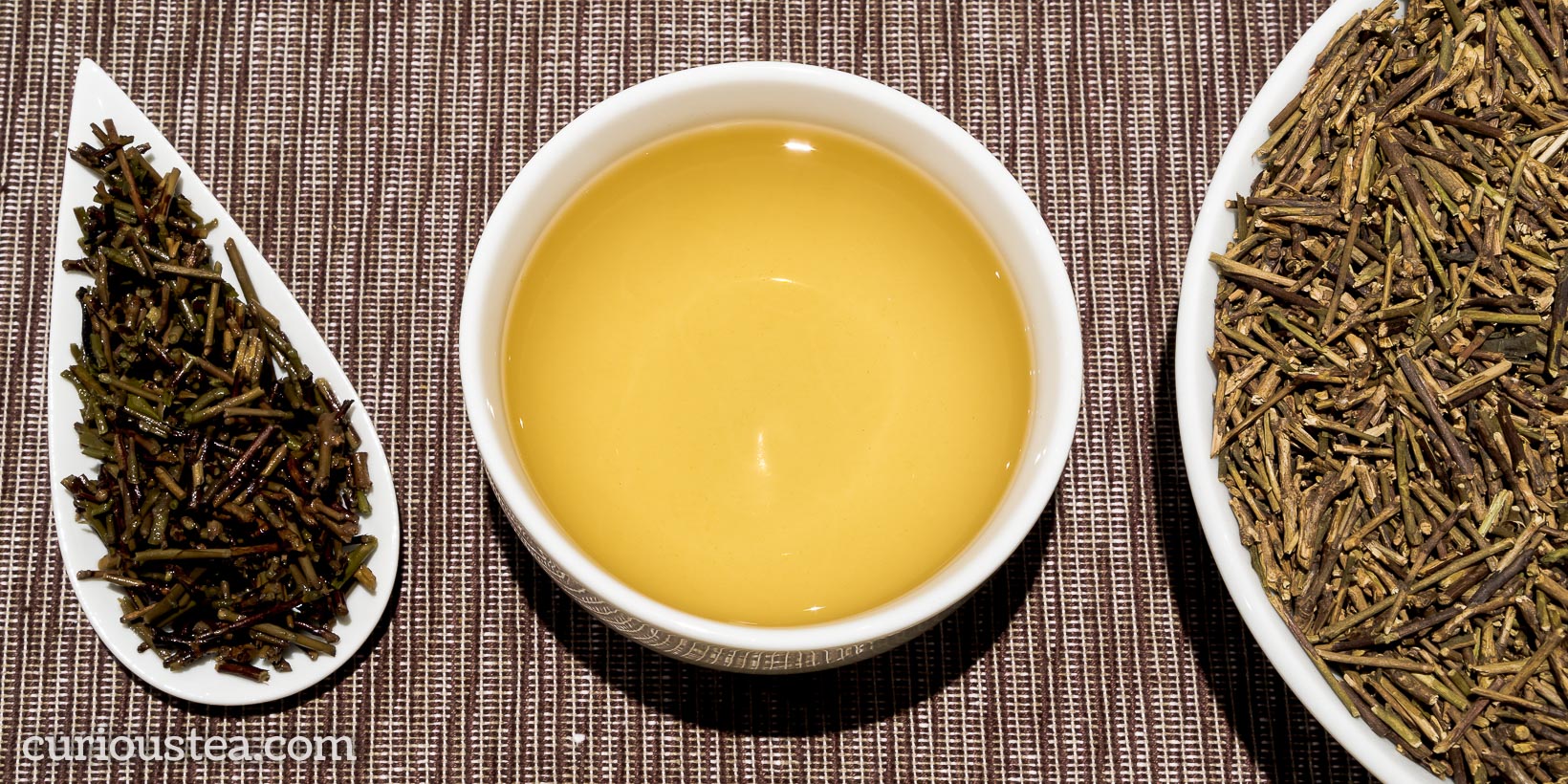
Boseong Kuki Hojicha (보성군 쿠키차 호지차) is an organic roasted twig tea from the Choi family plantation located in the famous Boseong County of South Jeolla Province. This tea consists solely of tea stems or twigs. It has been roasted to produce a comforting taste with a toasty flavour. Naturally low in caffeine, this is a perfect relaxation drink that is great in the evening and is suitable for those more susceptible to high caffeine content. This batch is made from blended harvests from 2023 and is sourced by us directly from the Choi family.
You may be interested in other teas we currently offer from the Choi Family Garden.

The Choi family plantation produces some classic teas that all have their own unique characters but maintain a distinctive ‘Korean’ taste. The family has owned this plantation for 3 generations and the tea making knowledge passes down from one generation to the next. They take great care in growing and producing their organic teas that showcase wonderful traditional Korean tea flavours. The Choi family also run tea making workshops for local schools, passing down their tea knowledge and promoting local agricultural work. Most children of farmers around the area are keen on moving to big cities for study and work, so their work is essential in ensuring the future of Korean tea.

The name for this tea is borrowed from classic Japanese teas. As there is no culture of making such tea in South Korea, the Choi family decided that it is more suitable to use the already existing Japanese names. Kukicha (Japanese 茎茶) refers to a twig or stem tea, while Hojicha (Japanese ほうじ茶) refers to a roasted green tea. Similarly to Japanese teas, this one is also processed as a green tea, after which it undergoes extensive roasting.
Boseong Kuki Hojicha is not really a typical green tea. The tea follows normal green tea processing but at the final stages it is exposed to high temperature, followed by a quick cooling phase. This imparts a characteristic roasted profile, at the same time lowering caffeine and catechin content. As catechin is responsible for astringency in tea, this results in a much mellower, non-astringent flavour that is hugely appealing. So while classed as a green tea, this one would also be appealing to fans of roasted oolong teas or even lighter black teas.
This tea consists solely of tea plant stems and twigs. It produces a bright liquor with a lightly toasted and tangy herbaceous aroma. The flavour is smooth and comforting with a definite baked and roasted note running throughout the tasting. There are cereal, woody and nutty notes that are balanced and not overpowering. The lasting aftertaste still delivers some more toasty notes that become more savoury with a mouthwatering aspect.
Boseong Kuki Hojicha is best brewed at 90°C for around 3 minutes and can be re-brewed multiple times.
You can also buy this Boseong Kuki Hojicha green tea in our online shop.
Suoi Giang Mossy Frog
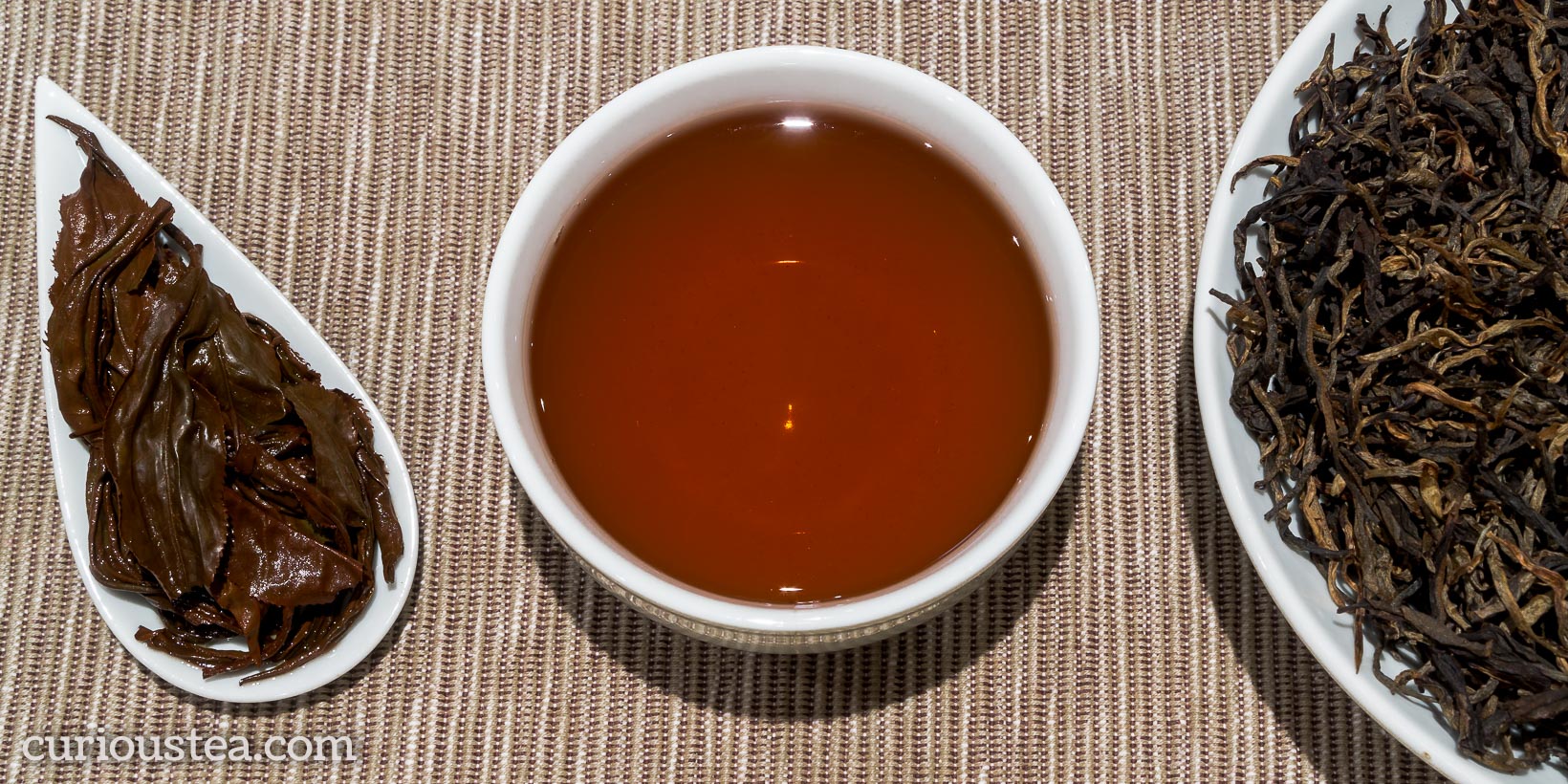
Suoi Giang Mossy Frog black tea is plucked by local hill tribes around Suoi Giang, Yen Bai Province. It is harvested from wild assamica trees that grow in ancient forests at an altitude of 1,400 metres and above. These trees grow on the high forested mountain slopes, completely naturally without any human interference; so under perfect organic conditions. This tea was harvested and processed in October 2023.
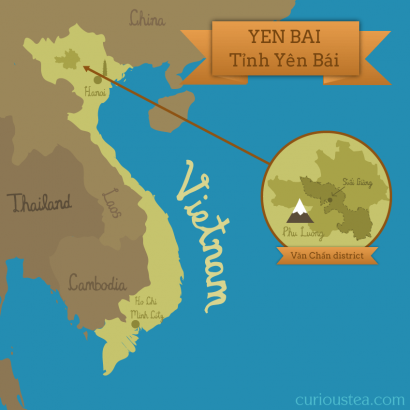
Suoi Giang Mossy Frog is a true wild tea, plucked and processed entirely by the Hmong ethnic families. The Hmong ethnic group started immigrating to this area of Vietnam from the 18th century and came from Southern parts of modern day China, including from Yunnan. As they travelled south they brought with them tea processing techniques and knowledge from China. Much of the wild grown tea is sold to China to be processed into pu-erh, but some small amounts are processed locally in Vietnam using traditional orthodox production methods. This black tea is from the same provenance as our Suoi Giang Five Penny green tea.
The tea gets its name from a species of frog found in the ancient forests of northern Vietnam. Unfortunately, the frog’s habitat is under threat due to deforestation. This same loss of forest also threatens the ancient wild tea trees that are found throughout the region.
The carefully-sorted large wiry leaves of this Suoi Giang Mossy Frog produce a richly coloured liquor with a light mineral aroma. The smooth taste has a classic black tea profile. There are stony, mineral and malty notes. It features well-rounded tannins present throughout that point squarely at the assamica origins. This tea is a perfect choice for those who like their black teas stronger, similar in style to Assam.
We suggest brewing parameters of 90°C for 2-3 minutes according to your taste. This tea can be brewed multiple times.
You can also buy this Suoi Giang Mossy Frog black tea in our online shop.
We really do hope that you enjoy this tea selection and are looking forward to the selection in our February box! Next month we will feature a very classic green tea, our version of Long Jing Dragon Well from China that has a typical vegetal and nutty profile. For the next light tea, we will be exploring a newly created lightly oxidised Sayamakaori oolong from Kanaya in Shizuoka that delivers a light floral and creamy profile.
For the darker side of the selection we will be featuring another tea from the Satemwa Estate in Malawi, this time a black tea that is lightly smoked with guava wood to produce a complex profile with some unusual notes. We will also continue exploring the Shan Lin Xi terroir, this time featuring a Mi Xiang honey flavour red oolong that has been expertly oxidised and roasted to produce a complex and captivating flavour.
If reading this has made you curious about our teas, but you don’t yet subscribe to a monthly tea selection, you can sign up for our tea boxes in just a few clicks. We ship worldwide from London, UK.
We always love to hear from you, so if you have any questions, suggestions or just want to chat about tea, email us at contact@curioustea.com, via our Facebook page or via Twitter.

